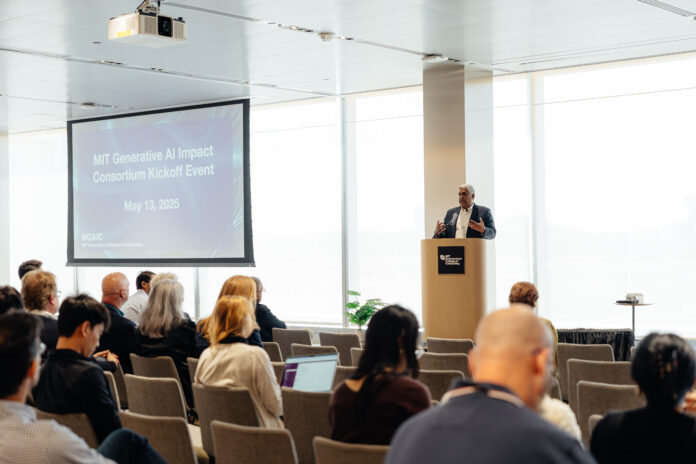Introduction to MIT’s Generative AI Impact Consortium
The Massachusetts Institute of Technology (MIT) has launched the MIT Generative AI Impact Consortium (MGAIC), a presidential initiative aimed at exploring the potential of generative AI models. This initiative is led by MIT’s Office of Innovation and Strategy and administered by the MIT Stephen A. Schwarzman College of Computing. The consortium issued a call for proposals, inviting researchers from across MIT to submit ideas for innovative projects that study high-impact uses of generative AI models.
The Response to the Call for Proposals
The call for proposals received an overwhelming response, with 180 submissions from nearly 250 faculty members across all five schools and the college. This response demonstrates the growing interest in AI and its potential applications. Fifty-five proposals were selected for MGAIC’s inaugural seed grants, with several more selected to be funded by the consortium’s founding company members.
Presenting the Proposals
Over 30 funding recipients presented their proposals to the greater MIT community at a kickoff event on May 13. Anantha P. Chandrakasan, chief innovation and strategy officer and dean of the School of Engineering, welcomed the attendees and thanked the consortium’s founding industry members. The presentations showcased a wide range of innovative ideas, including the use of AI-driven tutors for early literacy education and the development of real-time collaborative agents for live human-AI musical improvisation.
Highlights of the Presentations
Some of the notable presentations included:
- "AI-Driven Tutors and Open Datasets for Early Literacy Education," which proposed a refinement for AI-tutors for pK-7 students to potentially decrease literacy disparities.
- "Developing jam_bots: Real-Time Collaborative Agents for Live Human-AI Musical Improvisation," which aimed to enhance human-AI musical collaboration in real-time for live concert improvisation.
- "GENIUS: GENerative Intelligence for Urban Sustainability," which aimed to address the critical gap of a standardized approach in evaluating and benchmarking cities’ climate policies.
Conclusion
The MIT Generative AI Impact Consortium has sparked a wave of innovation and creativity across the institute. With its inaugural seed grants and funding from founding company members, the consortium is poised to make a significant impact in the field of generative AI. As Georgia Perakis, the John C Head III Dean (Interim) of the MIT Sloan School of Management, noted, "This is only the beginning. We are at the front edge of a historic moment — one where MIT has the opportunity, and the responsibility, to shape the future of generative AI with purpose, with excellence, and with care." The consortium’s efforts will undoubtedly contribute to the development of generative AI and its applications, and it will be exciting to see the impact of these projects in the years to come.

